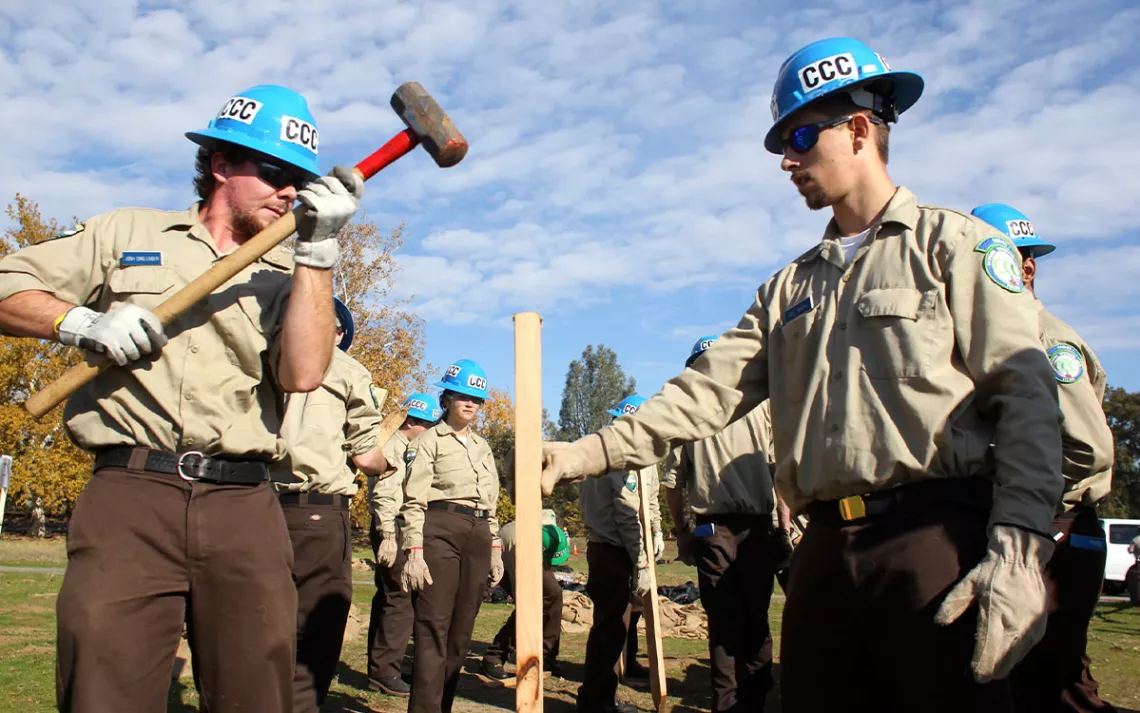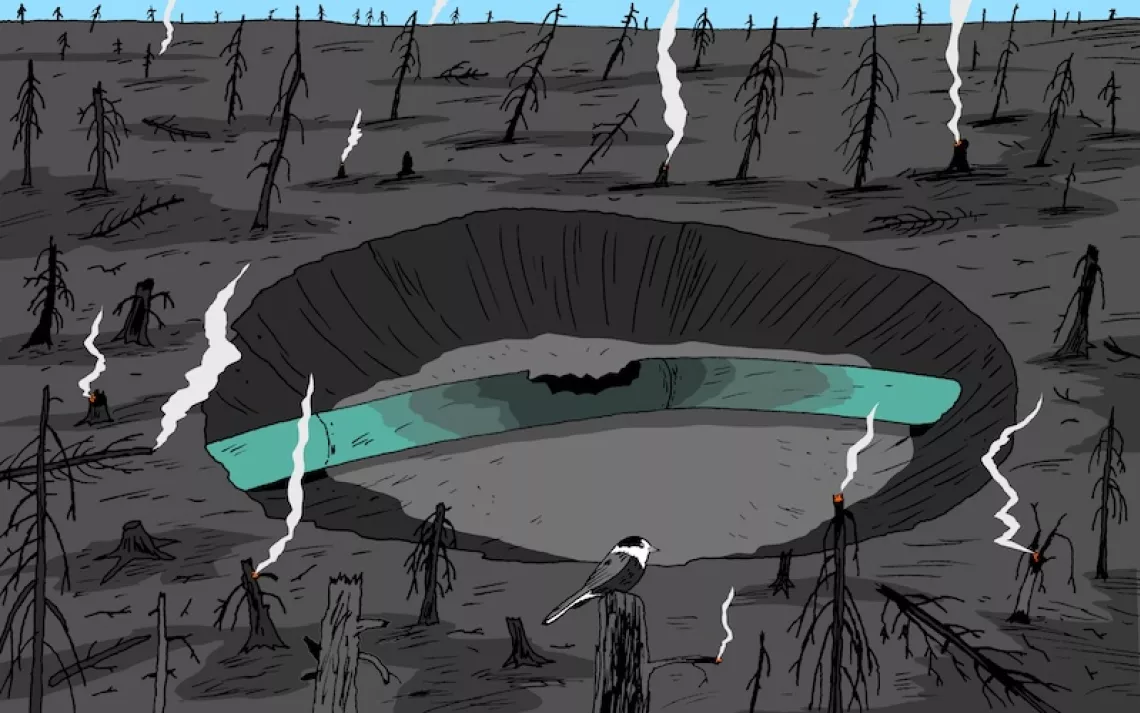New Climate Corps Will Put Young People to Work to Address Global Warming
The Biden administration fulfills a promise the president made to young climate voters

California Conservation Corps members in Red Bluff, California. | Photo by Greg Barnette/The Record Searchlight via AP
President Joe Biden on Wednesday signed an executive order creating the American Climate Corps, and in the process fulfilled a key campaign promise two years after Congress refused to launch a New Deal–style jobs program to address global warming. The initiative will provide job opportunities for young people in a variety of climate-focused fields including installing solar panels, building trails, and performing ecological restoration work. The administration says the program will create about 20,000 career-path jobs in its first year.
“The American Climate Corps will put thousands of young people to work in good-paying jobs that restore our public lands and coastlines and deploy clean energy all while growing our middle class and advancing environmental justice for all,” said Representative Raúl M. Grijalva, a Democrat from Arizona who is the ranking member of the House Natural Resources Committee.
The original version of the climate corps was a provision in the Biden administration’s Build Back Better Act, which morphed into the slimmed-down Inflation Reduction Act. But the plan for a climate corps was scuttled by West Virginia senator and coal booster Joe Manchin, who complained that the climate provisions in the act hinted at “eliminating fossil [fuels],” which he told CNN reporter Manu Raju, he found “very, very disturbing.”
The American Climate Corps, or ACC, is modeled on the Civilian Conservation Corps, which during the Great Depression supplied work for nearly 3 million Americans. Unlike FDR’s signature initiative, however, which put mostly white men back to work, the American Climate Corps will offer opportunities to women and people of color.
Robert Scott, associate director of federal policy for the Sierra Club, said the corps will not only pay people to work in fields that address the climate crisis but will increase access to nature among groups historically underrepresented in the outdoors. “This is a way to train and pay people to work, to learn, and to contribute to this new green economy,” Scott said. “It will also give them access to nature, which everyone deserves.”
The announcement comes days after more than 50 Democratic lawmakers signed a letter urging the president to use his executive powers to create a civilian climate corps. “With deadly heat, dangerous floods, rising seas, and devastating wildfires—including those that ravaged Maui last month—the climate crisis demands a whole-of-government response at an unprecedented scale,” reads the letter, which was released on the 30th anniversary of legislation that created Americorps.
There is growing bipartisan support among American voters for large-scale climate initiatives like the ACC. A 2023 survey by Data for Progress, a progressive think tank, found that 88 percent of Democrats, 60 percent of Independents, and 41 percent of Republicans are in favor of a national jobs program aimed at curbing climate change and maintaining public lands.
The national climate corps mirrors state programs that have been implemented in Colorado, Maine, Michigan, Washington, and California. According to the office of California governor Gavin Newsom, five other states—including Republican strongholds Utah and North Carolina—are rolling out their own programs following Wednesday’s announcement.
One of the groups that fought hardest for the American Climate Corps is the Sunrise Movement. “After years of demonstrating and fighting for a climate corps, we turned a generational rallying cry into a real jobs program that will put a new generation to work stopping the climate crisis,” said Sunrise Movement executive director Varshini Prakash in a statement. “With the ACC and the historic climate investments won by our broader movement, the path toward a Green New Deal is beginning to become visible.”
The Biden administration’s climate policies have recently come under fire from Sunrise and other environmental groups, notably its approval in March of the Willow project, a massive petroleum venture by ConocoPhillips along Alaska’s North Slope. Based on White House estimates, oil drilling at Willow would release 9.2 million metric tons of carbon a year into the atmosphere. “When President Biden ran in 2020, he committed to end new oil and gas drilling on public lands and waters,” Prakash said. “Instead of sticking to his own goals and listening to the millions of young people who carried the party for the last three cycles, President Biden is letting the fossil fuel industry have their way.”
With the enactment of the ACC, the Biden administration will likely assuage some of that criticism by fulfilling one of its biggest environmental campaign promises. And there are signs of more to come. Immediately following the announcement of the ACC, the administration unveiled $4.6 billion in EPA grants to fund state programs that cut carbon emissions, and another $500 million in federal grants to improve access to clean drinking water in underserved communities.
 The Magazine of The Sierra Club
The Magazine of The Sierra Club







